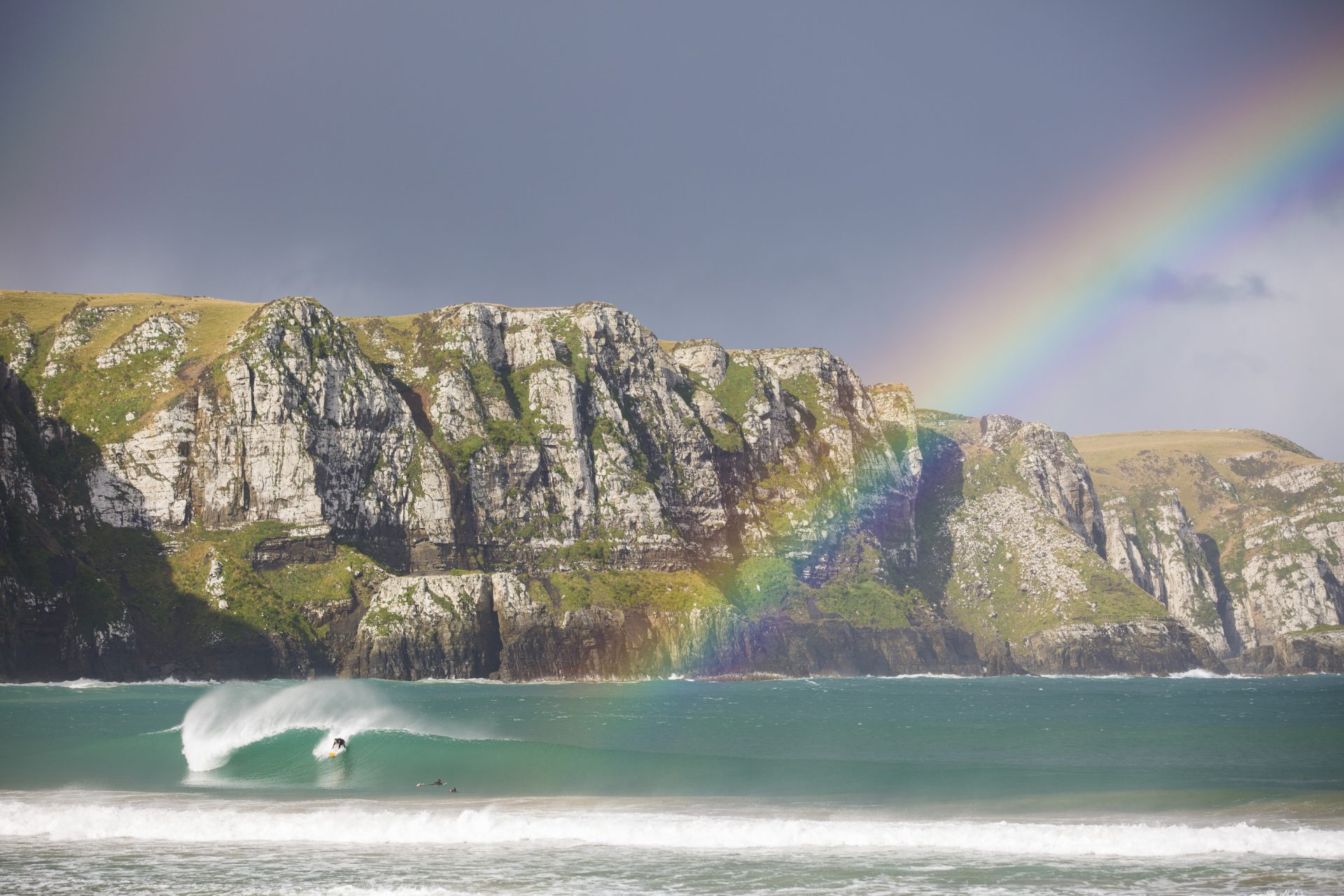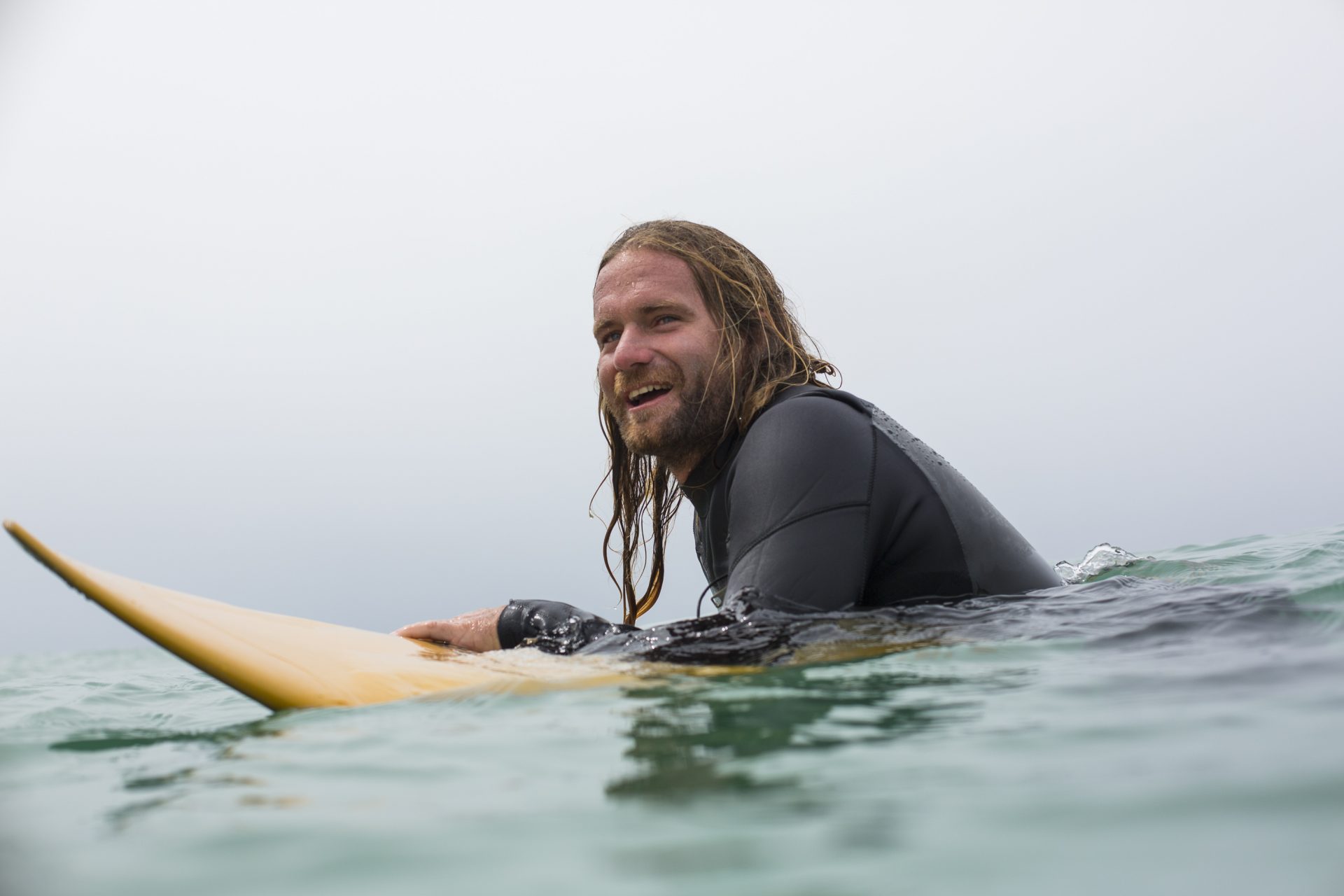Every now and then you meet someone who just resonates with wisdom and worldliness. I met a guy called Bede Carmine (that’s him above) on a miserable, but wave-rich day in the Catlins. He was helping singer-songwriter Ziggy Alberts on one of his early New Zealand tours. It was raining horizontally as we were huddled around a Catlins campfire, the evening sky draining of its pale hue above us.
Bede was 32 and had spent much of his adult life travelling the world, working odd jobs in France, Japan, the UK and a three-year stint living and working on a boat that sailed around the world. Then he discovered Smile – a wildly intriguing business idea created by his good friend Soren Molineux. Sell a T-shirt and give one away to those in need. A socially responsible business model shoe-horned into fashion.
Once you remove the goal of ‘getting rich’ or ‘accumulating wealth’ in business, you start to see what you really want to achieve. For us, the goal was to be able to give back to children in communities that needed it, but to do it in a sustainable way.
“There are so many factors that contributed to Smile being an ethical trading company that follows a One for One business model,” shares Bede as he crouches to get closer to the flames’ warmth. “I think first and foremost, we had all travelled and spent a lot of time travelling to developing countries, often to surf, but also to explore. During these trips we learned quickly how easy it was to contribute to the locals in these countries, we learned how incredible it could make you feel when you give and how easy it was to raise a smile from the faces of children who really needed them.”
Bede said the One for One business model was also something that took very little consideration.
“Once you remove the goal of ‘getting rich’ or ‘accumulating wealth’ in business, you start to see what you really want to achieve. For us, the goal was to be able to give back to children in communities that needed it, but to do it in a sustainable way.”
Smile may seem like an outlier destined to fail in a vault of social goodwill, but it is turning heads and some of the world’s most successful business leaders are among them.
“Mainstream chat seems to have skipped over one of Richard Branson’s most important initiatives,” explains Bede. “The Virgin Group has invested heavily into alternate trading models, whether it’s through social, environmental or economical differences, Virgin Unite (a subset group of Virgin and home to its not for profit arm) has started to categorise and collaborate with smaller businesses who’re out there ‘doing good’ on a day-to-day basis. Smile was approached by Virgin to become a part of this a few years back.”

There are personal reasons why Bede and Smile chose the path they did.
“I feel it’s important to be a nice person, this does not simply mean being nice to your friends and family, but if you bring this into your business life or your trading model then you will benefit personally and positively,” he explains.
“On a larger scale, it is so important for us to deviate from what capitalist trade has evolved into … it’s simply not working. We are placing unsustainable pressure on our environment and on other inhabitants of this beautiful world and if we do not deviate from these methods we are setting ourselves up for a monumental fall.”
“To take responsibility through trade is imperative and also super-effective; consider how widespread ‘traders’ are … they’re a common thread throughout the world. By altering our method of trade by just a few degrees to incorporate ‘doing good’, the effect can be monumental on both the environment we live in and our fellow man. For Smile, and for Virgin, the pursuit to achieve these goals is our inspiration and something we’re both conscious to promote and participate in.”
We are placing unsustainable pressure on our environment and on other inhabitants of this beautiful world and if we do not deviate from these methods we are setting ourselves up for a monumental fall.
Bede is Australian and now lives in Bali. He said coming to New Zealand and exploring the South Island beaches “blew him away”.
“The thing I loved most about the New Zealand surf culture was the sense of adventure behind locating the spots, often hiking in on destinations, sometimes being skunked, but sometimes reaping the rewards,” he smiles with a hearty laugh.

